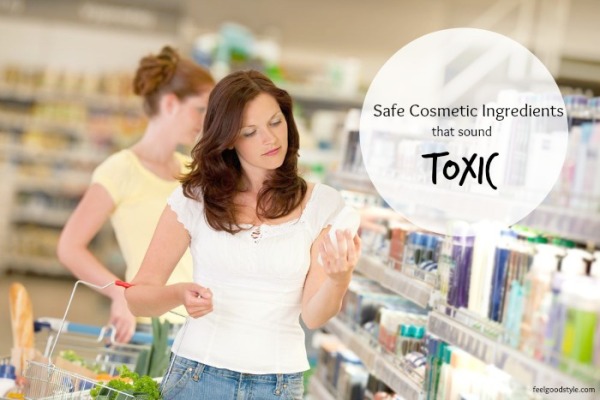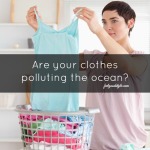Identifying safe cosmetic ingredients is definitely not a clear cut task.
There are cosmetic ingredients that get a lot of negative attention (parabens, phthalates), therefore easily identifiable, and those that are straightforward natural. But are you running across the same questionable ingredients time and again? Cosmetic ingredients that sound chemical but aren’t on any of the to-be-avoided lists?
There are a handful of ingredients used regularly in safe cosmetics that come with a moniker that seems less than natural. You’ve most likely read that it is best practice not to purchase a product that contains ingredients that are difficult to pronounce. While this method is okay for some products that are made from only a few ingredients, it certainly can’t be applied to the entire gamut of cosmetics.
You know which ingredients to avoid, have learned how to read product labels, and even have a downloadable guide for quick IDing. Now let’s take a crash course on these cosmetic ingredients that sound like they should be on the naughty list but are actually safe.
It is important to keep in mind that there are both natural and synthetic versions of many ingredients. When in doubt, the best way to know which one is in your product is to check the brand ingredient commitment. This can usually be found on the brand web site. Many brands will note this on the product label, as well.
6 Common Cosmetic Ingredients that Only Sound Toxic
Here are some safe cosmetic ingredients that may give you pause when you read them on the label. We explain what they are, their purpose, and give the Environmental Working Group’s (EWG) rating from their Skin Deep Cosmetics Database.
1. Caprylic/Capric Triglyceride
It definitely sounds unnatural, but Caprylic/Capric Triglyceride is actually the combination of plant sugars and fatty acids derived from palm and coconut oils. The result is a much silkier, lighter feeling oil with a longer shelf life. This oil is also very mild and suitable to most skin types, another reason you may seem to run across it often.
EWG rank = 1
2. Cetearyl Alcohol
We’ve been taught to avoid alcohol because of contaminants and its skin irritating properties. And yes, benzyl alcohol is irritating and should be avoided if you are highly susceptible to allergens. Cetearyl alcohol is a combination of fatty alcohols derived from vegetable sources, such as coconut or palm oils. It is used in cosmetics as a surfactant and emulsifier, and is much milder than benzyl alcohol.
EWG rank = 1
3. Xanthan Gum
You’ve seen this on food labels your whole life but never really knew what it was? Sounds anything but natural, right? Xanthan gum may have an unfortunate sounding name, but is simply a carbohydrate derived from plant bacteria. A little gross, maybe. But this nontoxic thickening agent is harmless and works in cosmetics to keep the product from thickening.
EWG rank = 0
4. Coco Glucoside
Made from dried coconut pulp and fruit sugar, this mild surfactant is commonly used in cosmetics. Coco Glucoside is gentle enough for all skin types, and is biodegradable and nontoxic. Not to be confused with other surfactants which are much less safe.
EWG rank = 0
5. Sodium Hyaluronate
This one crops up a lot on anti-aging product ingredient listings. Sodium hyaluronate is the sodium salt of hyaluronic acid. Same great skin benefits, but a smaller molecular size allows this ingredient to more readily sink into skin. Sodium hyaluronate retains water, giving the skin that plumped up hydrated appearance.
EWG rank = 0
6. Glyceryl Stearate Citrate
Has to be toxic, right? Wrong. Glyceryl Stearate Citrate is a combination of vegetable oils and citric acid. It is used in cosmetics as an emollient and fragrance ingredient.
EWG rank = 1
[Image of woman shopping via Shutterstock]


